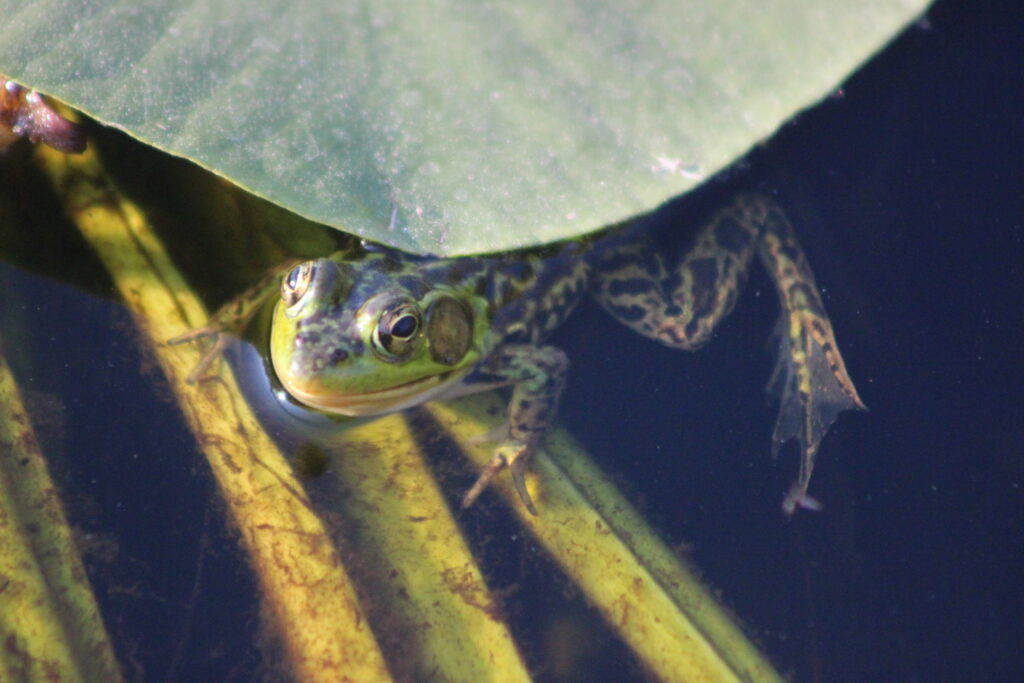|
This page was exported from Bancroft this Week
[ https://www.bancroftthisweek.com ] Export date: Mon Mar 31 1:18:29 2025 / +0000 GMT |
Ginowaydaganuc in the garden By Nate Smelle One of my favourite things about gardening is how every year the soil turns up a few surprises, that had been lingering beneath the surface since last growing season. No matter how many seeds one collects from their harvest, there are always plenty of escape artists that catch a ride from gravity back to the earth from which they came. Usually, in my garden at least, the seeds most eager to get growing on their own come from the tomatoes that show the most initiative to leave the vine behind. On occassion, I will be pleasantly surprised by the odd bean, potato, or clove of garlic that shows the same drive. However, most of the time, it is the tomatoes that are the wildest and most productive plant in the garden. It is for this reason, and their many delicious uses, that tomatoes remain my favourite plant in the garden. Having neglected to start seedlings in time for this year's growing season, I am even more appreciative of every proactive plant this year, that has pushed its way through the soil to welcome the sun. While working in the garden on the weekend, I started thinking of all the hardships each tiny seed had to endure before its fruit would end up in my stomach. From heavy snow and starving squirrels, to scorching temperatures and long periods of drought, it is a miracle that any seed survives the harsh conditions nature dishes out. Still, somehow, every spring the “Green Man” arrives with a new, although familiar bag of tricks. Spotting a patch of self-starters sprouting up amongst the tomato plants I purchased at one of the local garden centres, I put the shovel down when I noticed an interspecies team of pollinators was working alongside me in the garden. Picking up my camera, I began photographing the many different species going about their business in the space we shared. In just 10 minutes, without leaving the garden, I observed: a monarch butterfly; a northern leopard frog; a pair of flycatchers, a garter snake; as well as several types of bees, pollinating flies, ants, and spiders. Certainly if I spent more time taking inventory of this space, I am sure that I could fill this entire newspaper with a list of species. Overwhelmed by the abundance of life surrounding and crawling on me, I was reminded of the Algonquin word "Ginowaydaganuc" which I learned from the late Chief Stephen Hunter of the Kijicho Manito Madaouskarini Algonquin First Nation. A couple years ago, before the pandemic was there to remind us that we are all interconnected, Hunter explained to me that the word Ginowaydaganuc - understood as the interconnectedness of all things on Earth - was at the root of the Algonquin way of seeing and interacting with the world. Basically, he said the more time we spend connecting with nature, the more we appreciate it. It is from this appreciation, he told me, that we realize it makes good sense to be responsible stewards of the land, air, water, and web of biodiversity that give us life. When we truly understand the all-encompassing nature of this interconnectedness, Hunter said we also discover that all living things have a valuable place on the planet. Explaining the practical philosophy of Ginowaydaganuc to a group of 100 or so students from Bird's Creek Public School that day, Hunter said, “You are all the future of something that is really important to Algonquin people … and that's the Earth. Our language is centered around it. Our values are deeply entrenched in the Earth, and we believe that it is our responsibility to be good stewards. That means we need to look after the place that we live.” Once we take this valuable lesson gifted to us by Hunter into our hearts, it becomes clear that when we take care of our home planet, our home planet takes care of us. |
|
Post date: 2022-07-12 17:57:27 Post date GMT: 2022-07-12 21:57:27 Post modified date: 2022-07-12 17:57:37 Post modified date GMT: 2022-07-12 21:57:37 |
| Powered by [ Universal Post Manager ] plugin. HTML saving format developed by gVectors Team www.gVectors.com |